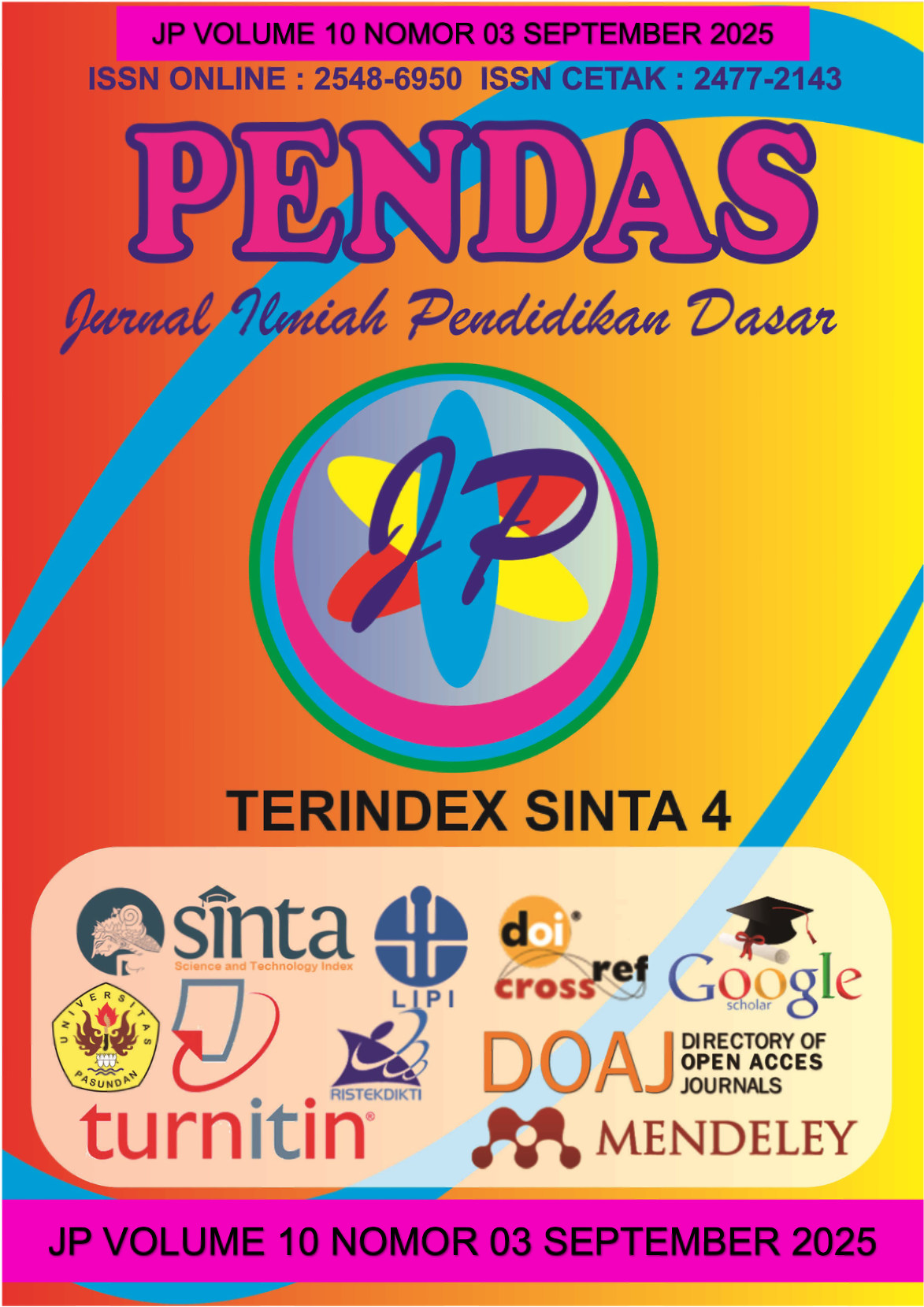IMPLEMENTASI TEORI BELAJAR BEHAVIORISTIK MELALUI STRATEGI PEMBELAJARAN EKSPOSITORI PADA MATA PEMBELAJARAN QUR’AN HADIST MATERI IMAN KEPADA ALLAH DI KELAS 1 MI ISLAMIYAH 2 PENGANTEN DALAM KURIKULUM MERDEKA
DOI:
https://doi.org/10.23969/jp.v10i03.28943Keywords:
Behaviorism, Expository Strategy, Qur'an Hadist, Iman kepada Allah, Merdeka CurriculumAbstract
This study explores the implementation of behaviorist learning theory through expository teaching strategies in the Qur'an Hadist subject, focusing on the topic of faith in Allah (Iman kepada Allah) for first-grade students at MI Islamiyah 2 Penganten under the Independent Curriculum (Kurikulum Merdeka). Using a qualitative descriptive method and case study approach, data were collected through observation, interviews, and document analysis. The results indicate that the teacher utilized an expository strategy by providing structured explanations, direct stimulus, and consistent reinforcement techniques. Positive reinforcement such as praise and rewards played a crucial role in maintaining student focus and improving memorization of verses and key concepts. Students demonstrated increased attentiveness, improved recall, and active engagement during learning sessions. These findings affirm that behaviorist-based approaches remain relevant and effective, especially in early primary education and in delivering abstract religious concepts, when adapted within the framework of the Merdeka Curriculum
Downloads
References
Sugiyono. (2017). Metode Penelitian Kualitatif, Kuantitatif, dan R&D. Bandung: Alfabeta.
Moleong, L.J. (2018). Metodologi Penelitian Kualitatif. Bandung: Remaja Rosdakarya.
Creswell, J.W. (2014). Research Design: Qualitative, Quantitative, and Mixed Methods Approaches. Thousand Oaks: SAGE.
Miles, M. B., Huberman, A. M., & Saldana, J. (2014). Qualitative Data Analysis: A Methods Sourcebook. Los Angeles: SAGE Publications.
Kementerian Agama RI. (2022). Panduan Kurikulum Merdeka pada Madrasah. Jakarta: Direktorat Jenderal Pendidikan Islam.
Piaget, J. (1952). The Origins of Intelligence in Children. New York: International Universities Press.
Skinner, B.F. (1974). About Behaviorism. New York: Alfred A. Knopf.
Slavin, R. E. (2006). Educational Psychology: Theory and Practice (8th ed.). Boston: Pearson Education.
Sudjana, N. (2009). Dasar-Dasar Proses Belajar Mengajar. Bandung: Sinar Baru Algensindo.
Arifin, N. (2024). Analisis Kemandirian Belajar Peserta Didik Sekolah Dasar.Sistema: Jurnal Pendidikan,5(1), 87-92.
Cipta, N. H., Rokmanah, S., & Wijayanti, R. S. (2023). Penggunaan Teknologi Sebagai Media Pembelajaran di Sekolah Dasar. Jurnal Pendidikan Tambusai, 7(3), 23955-23959.
Fadli, M. R. (2021). Memahami desain metode penelitian kualitatif. Humanika, 21(1), 33-54.
Frost, S. H. (1991). Academic advising for student success: A system of shared responsibility. School of Education, George Washington Univ.
Handini, O., & Mustofa, M. (2023). Model Pembelajaran Inovaif di Sekolah Dasar. Surakarta: FKIP UNISRI
Ningsih, M. V., Handayani, S., & Handini, O. (2022). Analisis Penggunaan Model Pembelajaran Paired Story Telling dalam Keterampilan Bercerita Peserta Didik pada Pembelajaran Tematik Integratif di Kelas
Downloads
Published
Issue
Section
License
Copyright (c) 2025 Pendas : Jurnal Ilmiah Pendidikan Dasar

This work is licensed under a Creative Commons Attribution 4.0 International License.














































